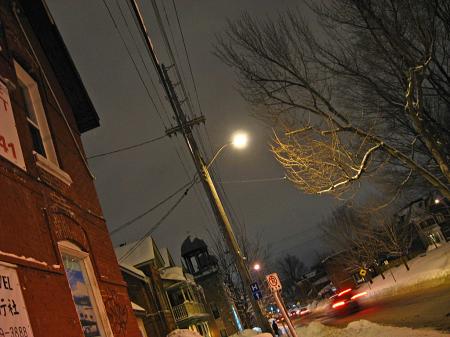The results of the election in Russia yesterday are not surprising, though they are part of a very worrisome overall trend. Bolstered by high energy prices and strategic overstretch on the part of the United States, Russia is regaining some of its nastier old habits. Of course, it is unreasonable and unacceptable to hope that Russia will remain as powerless as it has been since the fall of the Soviet Union. As much as is the case with China, the question of how a powerful Russia will return to geopolitics is an interesting and somewhat frightening one.
Europe’s vulnerability to Russian control of natural gas supplies has been well demonstrated of late. Poorer Central European states are potentially even worse off in the medium term, if Russia manages to build pipelines that go around them. Turning off the heat in Kiev is unlikely when it means doing the same in Berlin. Being able to do the first without the second would further worsen the strategic situation presented to the states in the middle. I expect they are feeling pretty nervous right now, given how generally spineless NATO and the EU have been recently in the face of Russian bullying.
Hopefully, concerns about access to gas will help to advance the drive towards renewable energy in Western Europe, eventually reducing the economic vulnerability of those states to Russian machinations. Such an outcome would have positive consequences in relation to the state of the global environment, and may embolden Europe’s democracies in relation to an increasingly assertive and unapologetically totalitarian Russia.


Alas, I fear energy security concerns are as likely (perhaps more likely) to drive Western governments towards coal or nuclear as towards renewable energy. Still, perhaps the combination of binding EU targets and dislike of Russia will help to sway reluctant converts (like the British government, who have virtually abandoned their EU renewables commitments).
Dear Russia,
Please remain strategically weak, economically chaotic, and generally uninfluential. The Yeltsin years are a good model.
Thanks,
The West
Andris Piebalgs on European Energy Security
Russia-Ukraine gas backstory
For the United Nations, the likely survival of Gadhafi will provide the opportunity for many members to offer an “I told you so.” The Russians and Chinese did not veto the Security Council resolution authorizing action against Libya, but they will not be disheartened by the West’s failure. Neither will Germany which opted out of the NATO response, reinforcing its close ties with Moscow (and helping to guarantee that it receives the energy imports it needs).
Not so long ago Germany seemed the supplicant because of its reliance on Russian oil and gas. The government’s recent decision to give up nuclear power and the news that Gazprom, Russia’s state-owned gas giant, would invest in German electricity have sharpened fears that Germany might become even more beholden to Russia. Mrs Merkel took pains to dispel this idea, turning down a Russian proposal to add a third pipe to the Baltic gas pipeline.
The Nord Stream project was formally opened at a ceremony in Germany attended by Chancellor Angela Merkel and Russian President Dimitry Medvedev.
The pipeline allows Siberian gas to flow directly to Germany, via twin pipelines under the Baltic Sea.
The new route means Russia can bypass traditional transit countries such as Ukraine and Poland, which have strained relations with Moscow.
The pipeline’s opening ceremy took place in the Geman town of Lubmin, where heads of state involved in the project opened a tap to release the first of the gas into the European grid.